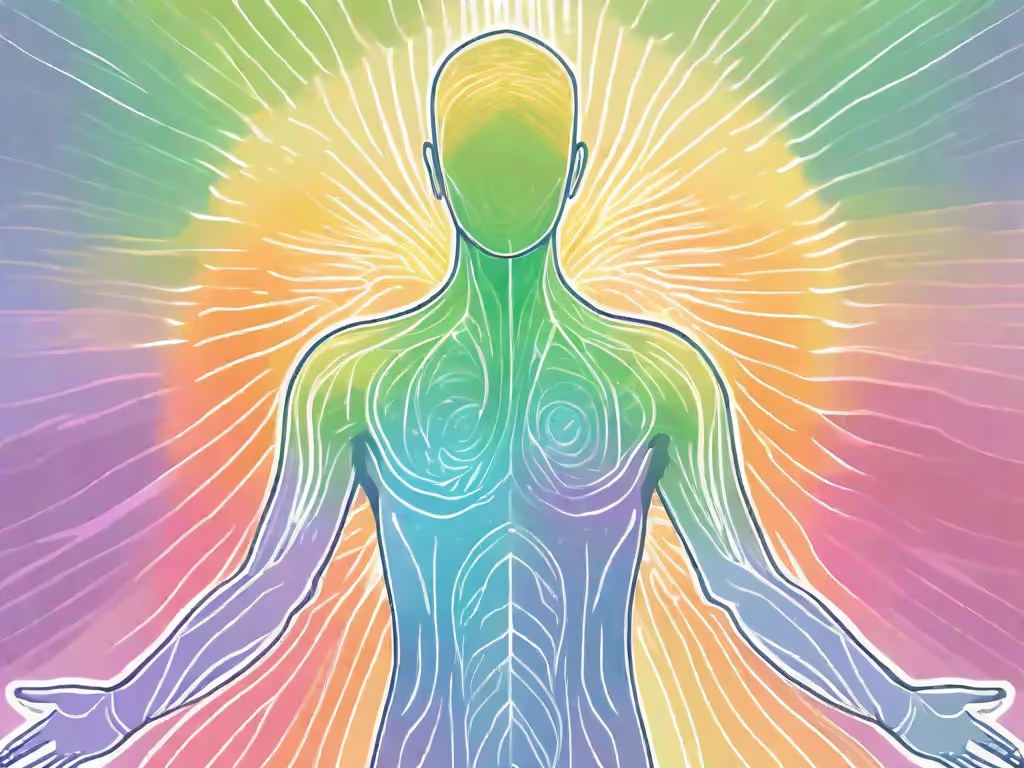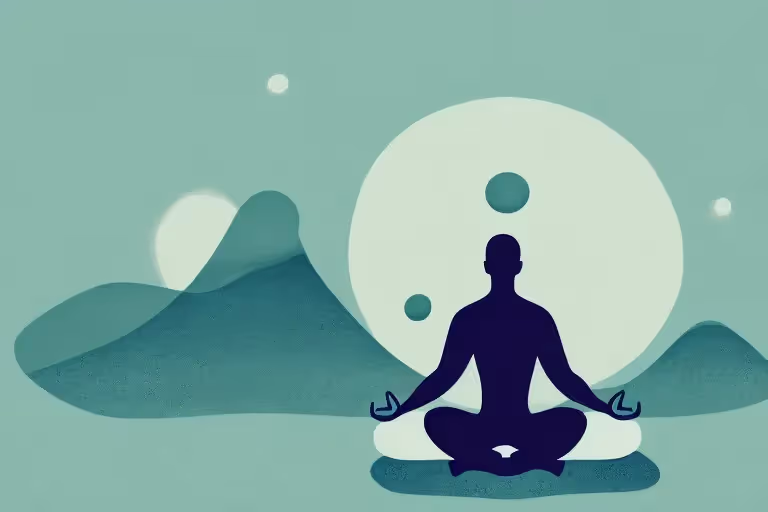Do you feel your palms getting sweaty at the thought of standing on a tall building or looking down from a high bridge? If so, you may be one of the many people who experience acrophobia - the fear of heights. Don't worry, you're not alone. In fact, acrophobia is one of the most common specific phobias, affecting millions of individuals worldwide.
Understanding Acrophobia: The Fear of Heights
Acrophobia, commonly known as the fear of heights, is a phobia that goes beyond a simple discomfort in high places. It is a complex psychological condition that can have profound effects on individuals both mentally and physically. To fully comprehend the intricacies of acrophobia, it is essential to delve into the various factors that contribute to its development.
One school of thought suggests that acrophobia may stem from past traumatic experiences. For instance, an individual who has had a terrifying fall from a great height may develop an intense fear of heights as a result. The memory of the traumatic event becomes deeply ingrained in their psyche, leading to an automatic fear response when faced with similar situations.
On the other hand, some experts argue that acrophobia is rooted in an inherent survival instinct. According to this theory, humans have evolved to be cautious of heights as a means of self-preservation. The fear of falling from a great height is believed to be an adaptive response that has helped our ancestors avoid dangerous situations and increase their chances of survival.
In addition to its psychological impact, acrophobia also manifests itself through various physical symptoms and reactions. Individuals with acrophobia often experience dizziness, a sensation of unsteadiness, and an overwhelming feeling of anxiety when confronted with heights. These physiological responses are accompanied by difficulty breathing or shortness of breath, as well as a rapid heartbeat.
These physical manifestations can be so distressing that individuals with acrophobia actively avoid situations that involve heights. This avoidance behavior can significantly impact their daily lives, limiting their ability to engage in activities such as climbing stairs, crossing bridges, or even looking out of a window in a tall building. Over time, the fear of heights can become all-encompassing, leading to a restricted and constrained existence.
Understanding acrophobia is crucial in order to provide appropriate support and treatment for individuals who suffer from this debilitating phobia. By unraveling the complex psychology behind acrophobia and exploring the various factors that contribute to its development, we can work towards helping those affected regain control over their lives and overcome their fear of heights.
The Impact of Fear of Heights on Daily Life
Socially, acrophobia can be isolating. It may prevent individuals from participating in activities such as hiking, rock climbing, or even enjoying the view from a tall building. The fear of heights can also restrict travel options and limit opportunities for personal growth and self-discovery.
Moreover, the impact of acrophobia extends beyond just social limitations. The fear of heights can have profound psychological effects on individuals, leading to a constant state of anxiety and stress. This persistent fear can infiltrate various aspects of daily life, making even simple tasks challenging and overwhelming.
Imagine waking up every morning with the knowledge that you have to face your fear of heights. The mere thought of stepping out onto a balcony or crossing a bridge can trigger intense feelings of panic and dread. This fear can be paralyzing, preventing individuals from fully engaging in their surroundings and enjoying the beauty of the world.
Additionally, the physical health consequences of acrophobia should not be overlooked. Studies have shown that the constant state of anxiety and stress associated with this fear can have detrimental effects on overall health. The body's stress response, triggered by the fear of heights, can lead to increased blood pressure, heart rate, and cortisol levels, all of which contribute to an increased risk of cardiovascular disease.
Furthermore, the compromised immune function resulting from chronic stress can leave individuals more susceptible to illnesses and infections. The constant state of anxiety weakens the body's natural defense mechanisms, making it harder to fight off pathogens and maintain optimal health.
It is important to recognize that acrophobia is not just a simple fear; it has far-reaching implications that can impact every aspect of an individual's life. From missed opportunities for adventure and personal growth to the detrimental effects on physical and mental well-being, the fear of heights can be truly debilitating.
Techniques to Overcome Fear of Heights
While acrophobia may seem daunting, there are effective techniques to help conquer this fear. Cognitive Behavioral Therapy (CBT) has proven to be valuable in treating specific phobias, including acrophobia. This therapy focuses on identifying and challenging negative thoughts and beliefs related to heights, gradually replacing them with more positive and realistic ones.
One of the key components of CBT is cognitive restructuring. This involves examining the irrational thoughts and beliefs that contribute to the fear of heights and replacing them with more rational and logical ones. For example, someone with acrophobia may believe that they will fall and die if they are at a certain height. Through CBT, they can learn to challenge this belief by examining the evidence and realizing that it is highly unlikely for them to fall and die in a safe and controlled environment.
In addition to cognitive restructuring, CBT also utilizes exposure therapy as a way to overcome the fear of heights. Exposure therapy involves gradually exposing oneself to heights in a safe and controlled manner, allowing the individual to confront their fear and gradually desensitize themselves to it. This can be done through various techniques such as virtual reality simulations, climbing progressively higher structures, or even standing on a balcony of a tall building while feeling supported and safe.
Exposure therapy is often conducted under the guidance of a trained therapist who can provide support and guidance throughout the process. The therapist helps the individual set achievable goals and provides strategies to manage anxiety during exposure. By facing their fear head-on and gradually increasing their exposure to heights, individuals can experience a decrease in anxiety and an increase in feelings of control and confidence.
Furthermore, it is important to note that overcoming the fear of heights is a gradual process and may require patience and persistence. It is not uncommon for setbacks to occur along the way, but with the right techniques and support, individuals can continue to make progress towards conquering their fear.
In conclusion, while acrophobia may be a challenging fear to overcome, there are effective techniques available to help individuals conquer their fear of heights. Cognitive Behavioral Therapy (CBT) and exposure therapy have proven to be valuable tools in treating specific phobias, including acrophobia. By challenging negative thoughts and beliefs and gradually exposing oneself to heights in a safe and controlled manner, individuals can desensitize themselves to their fear and experience a decrease in anxiety. With patience, persistence, and the support of a trained therapist, individuals can gain control over their fear and live a life free from the constraints of acrophobia.
Self-help Strategies for Managing Acrophobia
Alongside professional help, there are self-help strategies that can be employed to manage acrophobia. Breathing techniques, such as deep diaphragmatic breathing, can provide instant relief and help calm anxiety in the midst of a panic attack. Similarly, visualization and mindfulness exercises can redirect attention away from fearful thoughts and promote a sense of relaxation and control.
Professional Help for Fear of Heights
If your fear of heights is severely impacting your daily life and self-help strategies are not sufficient, it may be time to seek professional help. A qualified mental health professional, such as a psychologist or therapist, can provide personalized guidance and support to help you overcome your fear. They will work with you to develop a tailored treatment plan that suits your needs and goals.
Remember, you don't have to face this fear alone. Seek support from professionals who understand and specialize in anxiety disorders. With the right help, you can conquer your fear of heights and open up a world of endless possibilities.
On the other hand, if you're seeking additional support on your journey to conquer acrophobia or other anxieties, consider using the Aura Health App. This innovative app offers a variety of tools and exercises designed to promote relaxation, mindfulness, and overall mental well-being. Download the Aura Health App today and take the first step towards conquering your fear of heights.
Aura is Your All In One App for Meditation, Mindfulness Wellbeing
Find peace every day with one app for your whole well-being. There is no one-size-fits-all solution to mental well-being. Aura is the first all-in-one wellness app that learns how to best help you. Discover an endless library of expert-created tracks for your well-being, all taught by the world’s best coaches, therapists, and storytellers. With Aura's personalized recommendations, you can find peace every morning, day and night.



.webp)






.avif)

%20(1).avif)


.avif)
.avif)
.webp)


.avif)


















































































































.avif)

















.svg)









